Premium Only Content
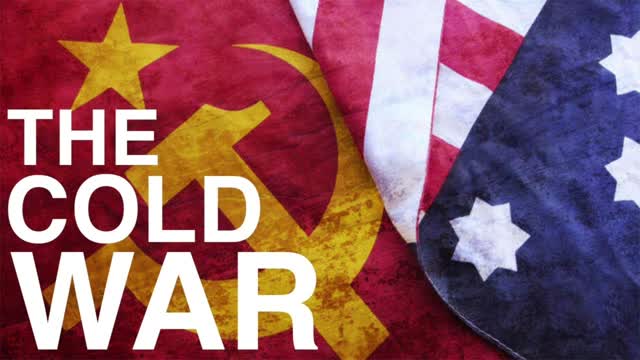
Cold war
Cold war
Collaboration among the major Allies had won the war and was supposed to serve as the basis for postwar reconstruction and security. However, the conflict between Soviet and U.S. national interests, known as the Cold War, came to dominate the international stage in the postwar period, assuming the public guise as a clash of ideologies.
The Cold War emerged out of a conflict between Stalin and U.S. President Harry Truman over the future of Eastern Europe during the Potsdam Conference in the summer of 1945. Russia had suffered three devastating Western onslaughts in the previous 150 years during the Napoleonic Wars, the First World War, and the Second World War, and Stalin's goal was to establish a buffer zone of states between Germany and the Soviet Union. Truman claimed that Stalin had betrayed the Yalta agreement. With Eastern Europe under Red Army occupation, Stalin was also biding his time, as his own atomic bomb project was steadily and secretly progressing.
In April 1949 the United States sponsored the North Atlantic Treaty Organization (NATO), a mutual defense pact in which most Western nations pledged to treat an armed attack against one nation as an assault on all. The Soviet Union established an Eastern counterpart to NATO in 1955, dubbed the Warsaw Pact. The division of Europe into Western and Soviet blocs later took on a more global character, especially after 1949, when the U.S. nuclear monopoly ended with the testing of a Soviet bomb and the Communist takeover in China. The foremost objectives of Soviet foreign policy were the maintenance and enhancement of national security and the maintenance of hegemony over Eastern Europe. The Soviet Union maintained its dominance over the Warsaw Pact through crushing the 1956 Hungarian Revolution, suppressing the Prague Spring in Czechoslovakia in 1968, and supporting the suppression of the Solidarity movement in Poland in the early 1980s.
As the Soviet Union continued to maintain tight control over its sphere of influence in Eastern Europe, the Cold War gave way to Detente and a more complicated pattern of international relations in which the world was no longer clearly split into two clearly opposed blocs in the 1970s. Less powerful countries had more room to assert their independence, and the two superpowers were partially able to recognize their common interest in trying to check the further spread and proliferation of nuclear weapons in treaties such as SALT I, SALT II and the Anti-Ballistic Missile Treaty.
U.S. - Soviet relations deteriorated following the Soviet invasion of Afghanistan in 1979 and the 1980 election of Ronald Reagan, a staunch anticommunist, but improved as the Soviet bloc started to unravel in the late 1980s. With the collapse of the Soviet Union in 1991, Russia lost the superpower status that it had won in the Second World War.
-
 LIVE
LIVE
LFA TV
15 hours agoLFA TV ALL DAY STREAM - WEDNESDAY 9/17/25
885 watching -
 1:00:00
1:00:00
BEK TV
23 hours agoAPRIL LUND: FAITH, FOCUS, AND THE ROAD TO THE 2028 OLYMPIC MARATHON
2.28K -
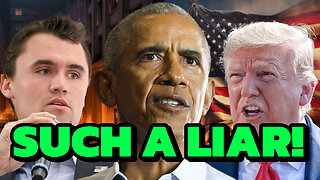 37:15
37:15
Stephen Gardner
1 hour ago🔥Trump ERUPTS After Obama’s Charlie Kirk Comments!
1.55K10 -
 LIVE
LIVE
Total Horse Channel
12 hours ago2025 WDAA Western Dressage World Championship Show | Day Two | Arena One
162 watching -
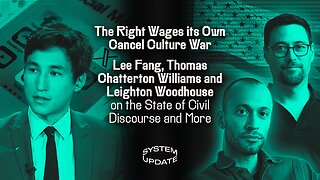 1:14:40
1:14:40
Glenn Greenwald
2 hours agoThe Right Wages Its Own Cancel Culture War: Lee Fang, Thomas Chatterton Williams, and Leighton Woodhouse on the State of Civil Discourse and More | SYSTEM UPDATE #517
134K32 -
 1:03:04
1:03:04
BonginoReport
4 hours agoBomb Squad Investigates Package at TPUSA HQ - Nightly Scroll w/ Hayley Caronia (Ep.136)
173K67 -
 1:23:11
1:23:11
Kim Iversen
6 hours agoDennis Kucinich Exposes 9/11 Israel's Lies
91.5K182 -
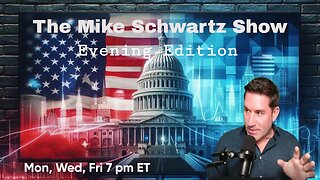 2:02:51
2:02:51
The Mike Schwartz Show
4 hours agoTHE MIKE SCHWARTZ SHOW with DR. MICHAEL J SCHWARTZ 09-17-2025
21.6K4 -
 LIVE
LIVE
Mally_Mouse
22 hours ago📣Telescreen Talks - LIVE!
183 watching -
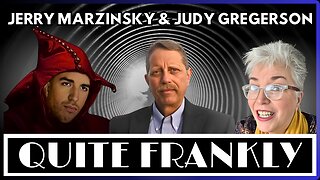 DVR
DVR
Quite Frankly
7 hours agoPsychotic Voices from Another World, Part 2 | Jerry Marzinsky & Judy Gregerson 9/17/25
18.1K5